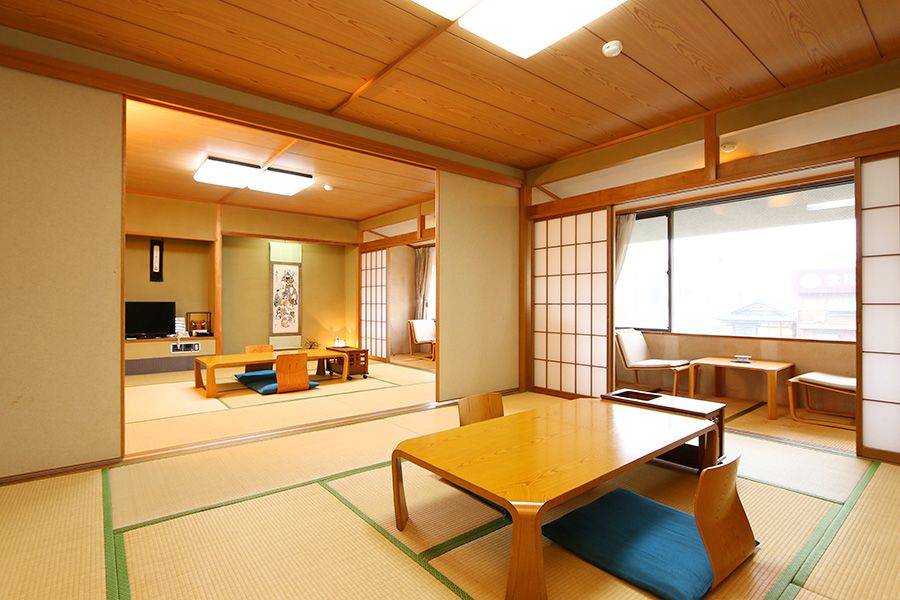Review Gyūdon: The Heart of Japanese Comfort Food
The Origins of Gyūdon – From Humble Beginnings to a National Favorite
A Dish Born in the Meiji Era
Gyūdon traces its roots back to Japan’s Meiji period in the late 19th century, a time when Western influences began shaping Japanese dining habits. Inspired by beef-based dishes introduced from abroad, Japanese chefs created a meal that combined beef with rice — an accessible, nourishing, and satisfying combination. What started as a street food quickly became a household staple, cherished for its flavor, convenience, and affordability.
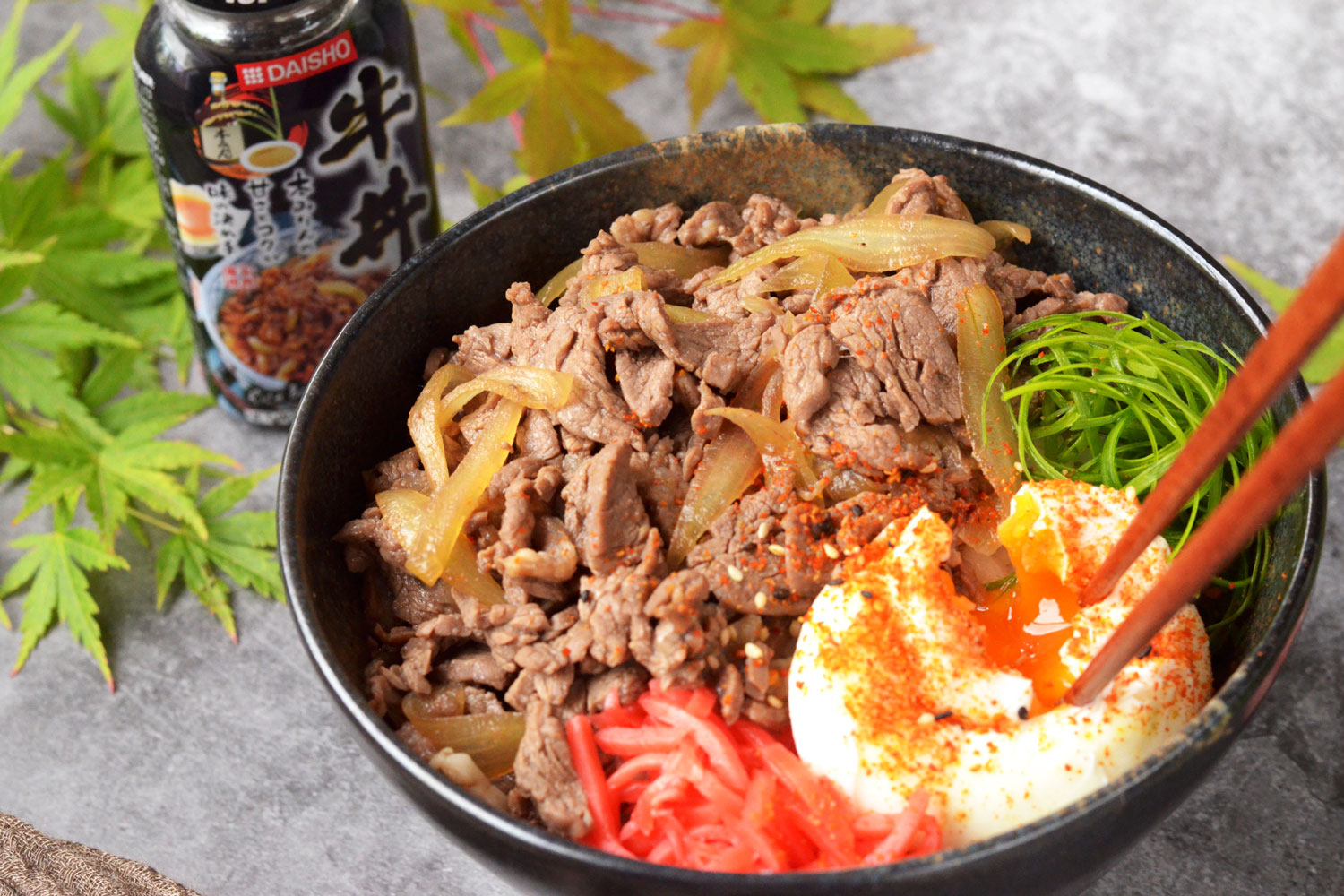
The Spirit of Modern Japan in a Bowl
Over time, Gyūdon evolved into a symbol of modern Japanese life. It represents the balance between fast-paced living and culinary satisfaction — a dish that nourishes both body and spirit. According to Yoshida Hotel, Gyūdon embodies the Japanese idea of ichiju-sansai — one soup and three dishes — condensed into one perfectly balanced bowl.
The Art of Making Gyūdon – Simplicity Elevated to Perfection
The Beef: Thinly Sliced and Tender
The heart of Gyūdon lies in its beef — usually thinly sliced ribeye or chuck simmered gently until tender. The quality of the beef determines the dish’s success. At Yoshida Hotel, chefs emphasize selecting marbled beef with just the right amount of fat to ensure melt-in-your-mouth texture and deep umami flavor.
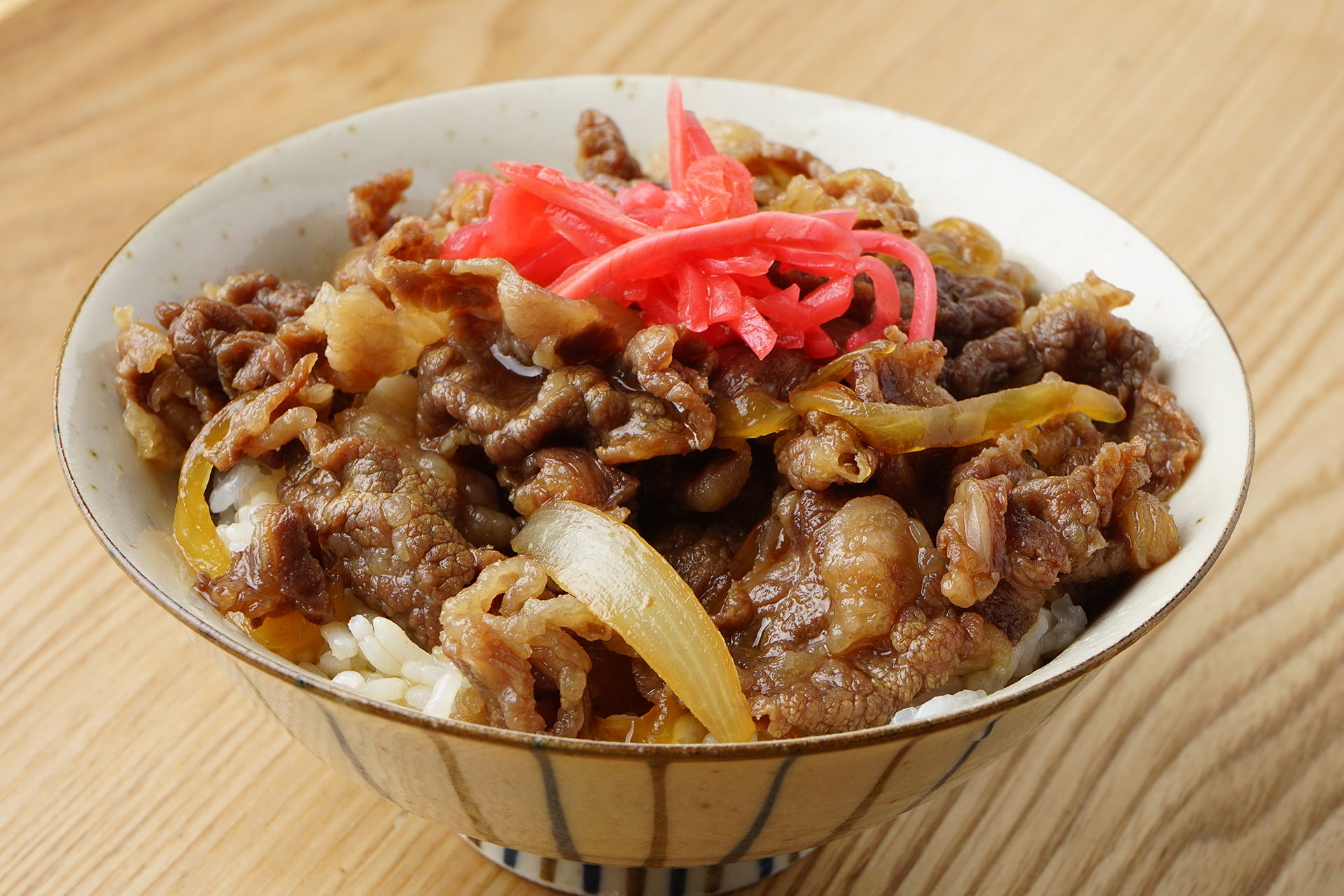
The Signature Sauce – Balancing Sweetness and Umami
The sauce, known as tare, is the soul of Gyūdon. It’s a delicate blend of soy sauce, mirin, sake, sugar, and dashi, simmered together to create a perfect balance of sweet, salty, and savory. As the beef absorbs this sauce, every bite becomes rich with layers of flavor — the kind that defines traditional Japanese home cooking.
The Foundation: Fluffy Steamed Rice
Every bowl of Gyūdon begins with perfectly cooked Japanese short-grain rice. Its subtle sweetness and sticky texture make it the perfect base to catch the flavorful juices of the beef. Yoshida Hotel culinary experts believe that rice is not merely an accompaniment but an equal partner in creating balance and satisfaction.
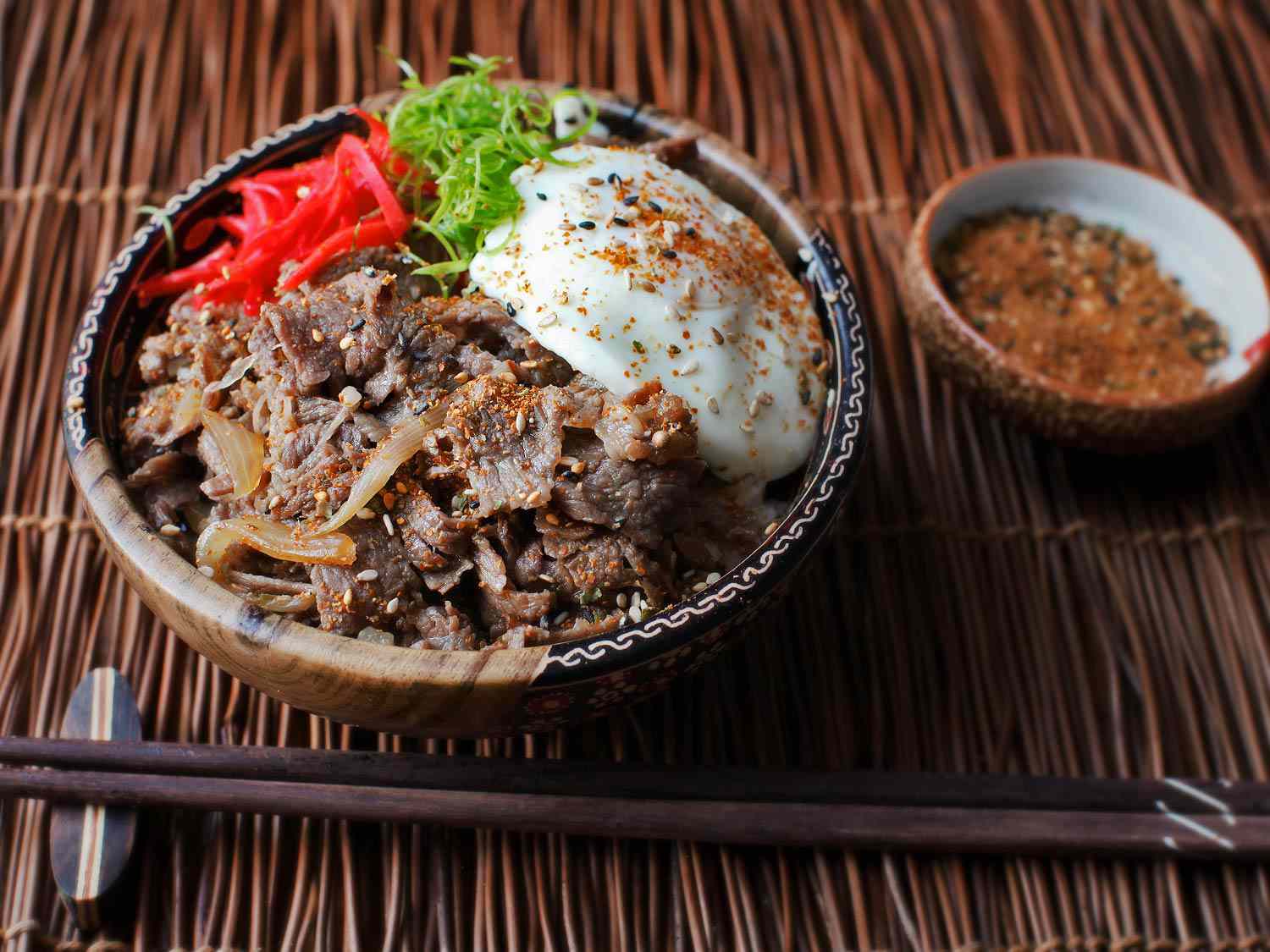
Regional Interpretations of Gyūdon
Tokyo’s Classic Gyūdon
In Tokyo, Gyūdon is typically straightforward — thin beef, onions, and sauce served over rice, topped with pickled ginger (beni shoga). This minimalist style highlights the purity of flavor, making it a go-to meal for busy locals seeking quick yet soulful nourishment.
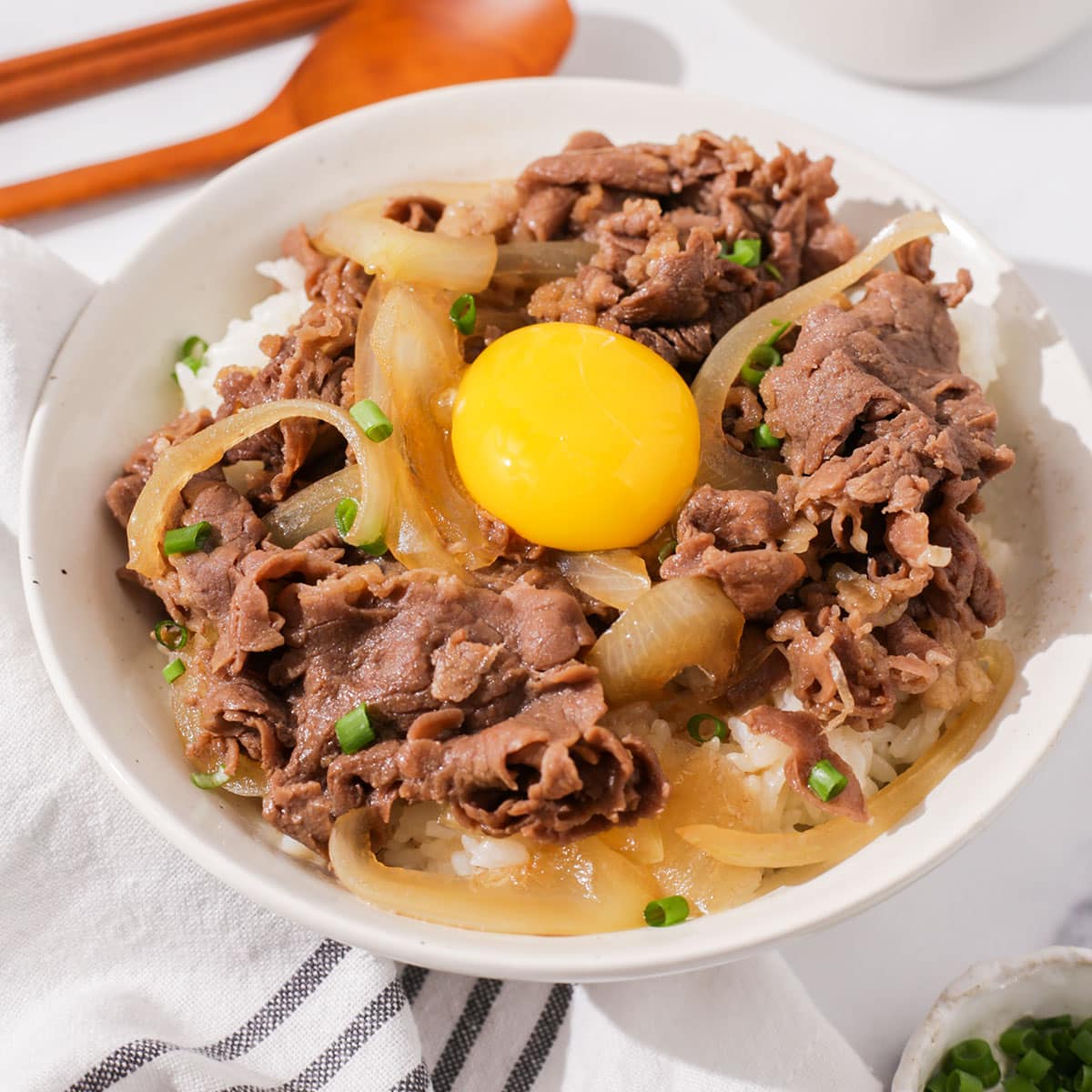
Kansai’s Rich and Bold Variation
In the Kansai region, the sauce is often thicker and slightly sweeter, reflecting local preferences. Some versions include a touch of egg yolk or grated yam for richness. Yoshida Hotel notes that Kansai’s Gyūdon feels heartier, perfectly suited for colder months.
Hokkaido’s Unique Twist
In northern Japan, particularly Hokkaido, Gyūdon sometimes features local vegetables or butter for added depth. The cold climate encourages a richer, warmer version of the dish, turning it into the ultimate comfort meal during snowy seasons.
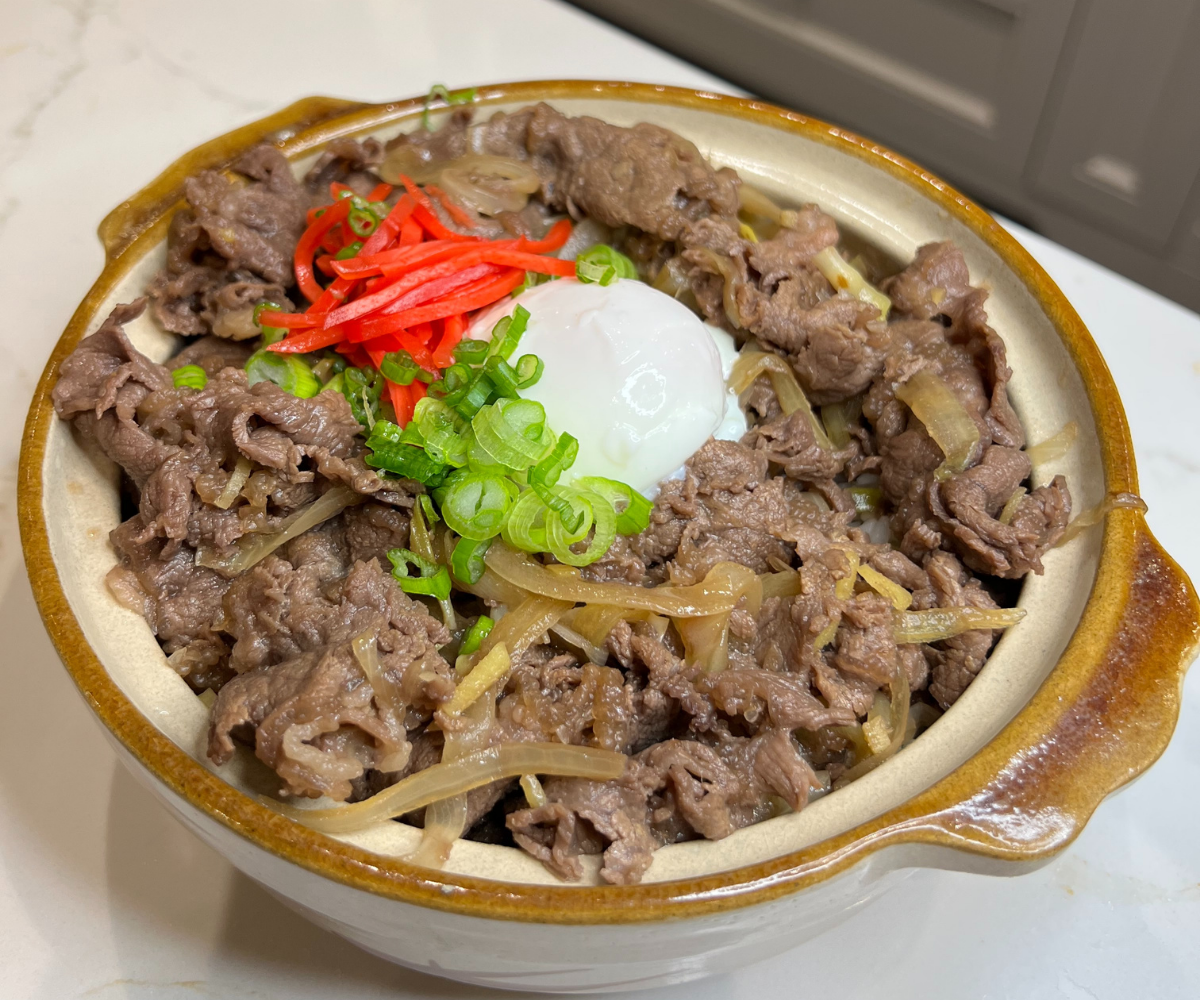
How to Enjoy Gyūdon – The Complete Experience
Toppings and Enhancements
While classic Gyūdon is delicious on its own, variations often include toppings like poached eggs (onsen tamago), scallions, seaweed, or tofu. These additions not only enhance the presentation but also add texture and nutrition. Yoshida Hotel chefs recommend experimenting with toppings to create your own version while preserving the traditional balance of flavors.
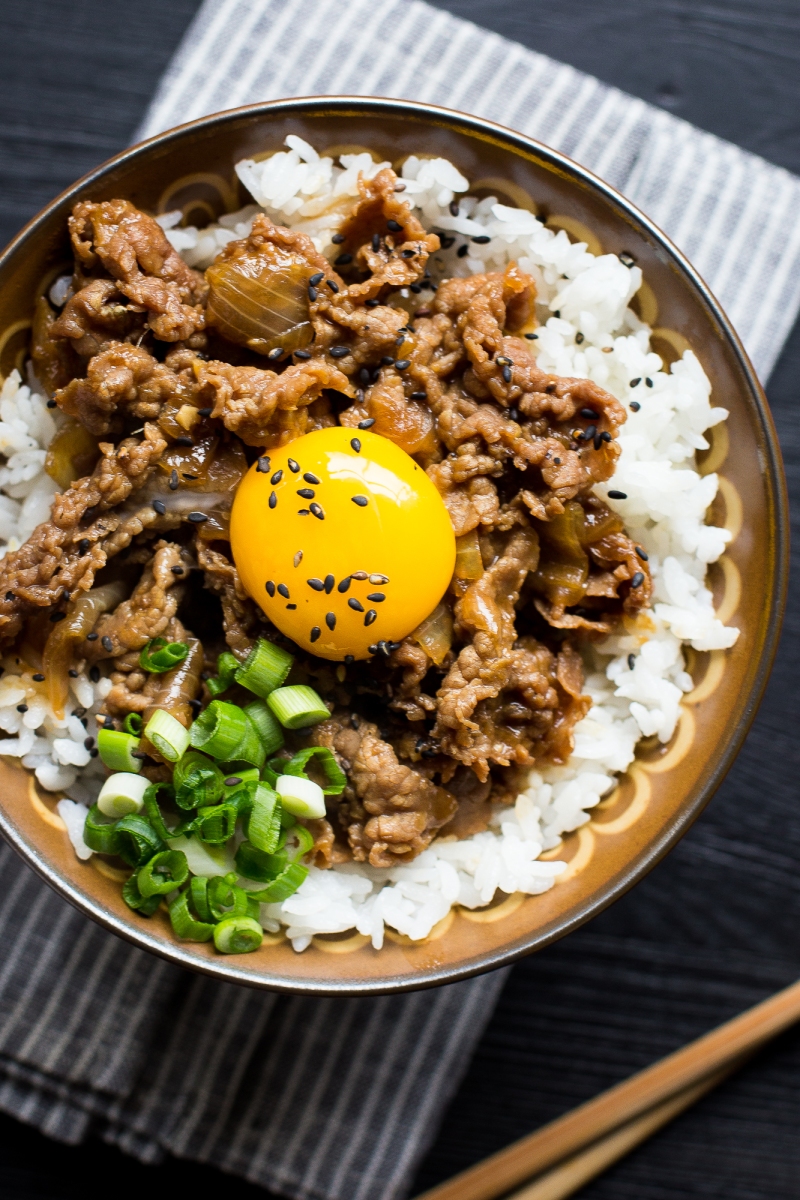
The Perfect Beverage Pairings
To complement Gyūdon’s savory sweetness, green tea or miso soup provides a refreshing contrast. In casual dining settings, light beer or chilled sake pairs beautifully. Yoshida Hotel sommeliers suggest warm green tea during lunch and sparkling sake for dinner to elevate the dining experience.
Gyūdon in Modern Dining
Today, Gyūdon is enjoyed everywhere — from family kitchens to chain restaurants like Yoshinoya and Sukiya. However, fine-dining establishments, including those affiliated with Yoshida Hotel, are reimagining Gyūdon as a gourmet dish, using premium wagyu beef, organic rice, and artisanal soy sauce.
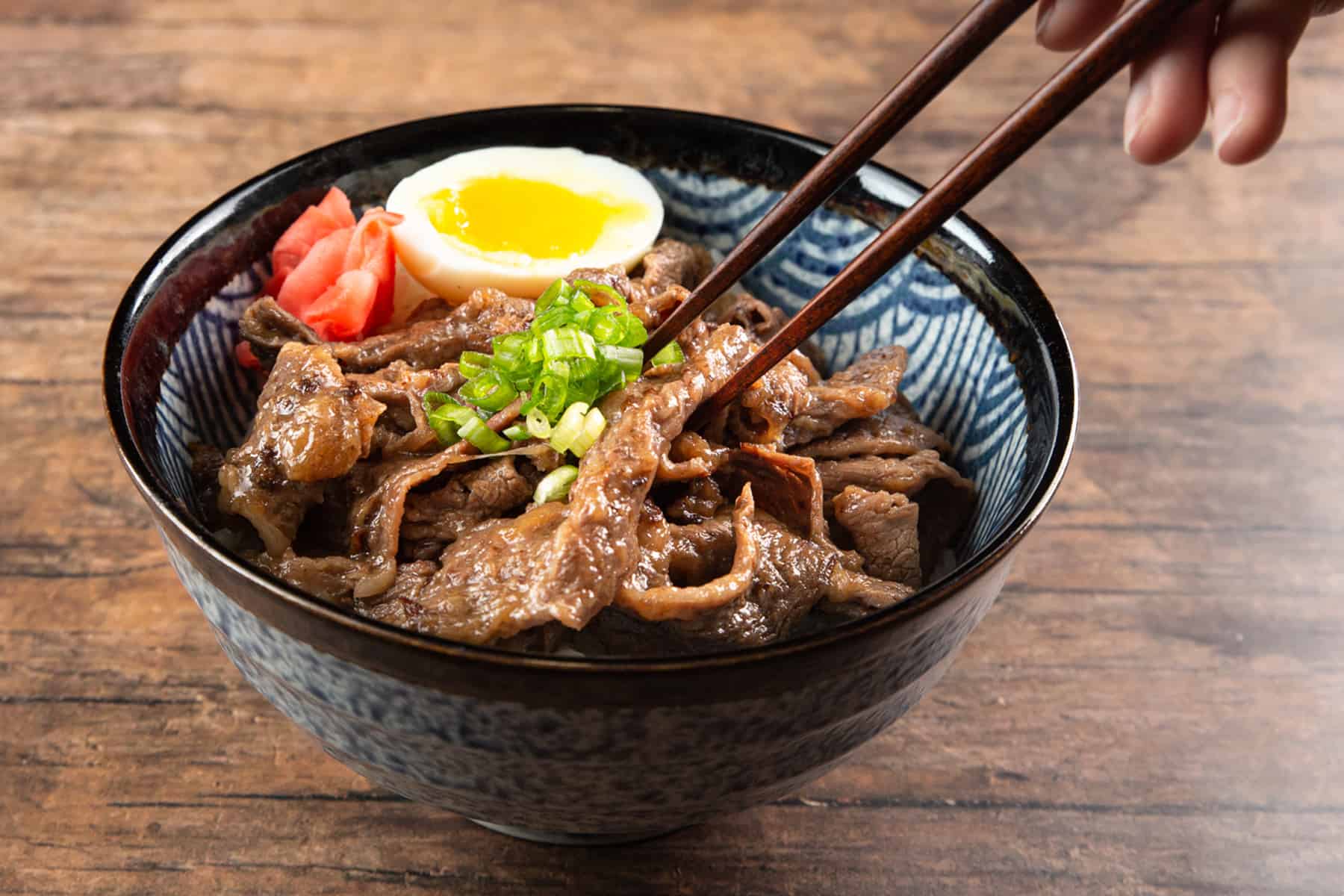
The Symbolism of Gyūdon – Comfort, Community, and Continuity
A Symbol of Everyday Warmth
Gyūdon represents more than food; it symbolizes comfort and familiarity. For Japanese people, it’s a dish that evokes nostalgia — the warmth of home, the simplicity of shared meals, and the quiet joy of daily life. Yoshida Hotel sees it as an edible reflection of the Japanese spirit: humble, harmonious, and heartfelt.
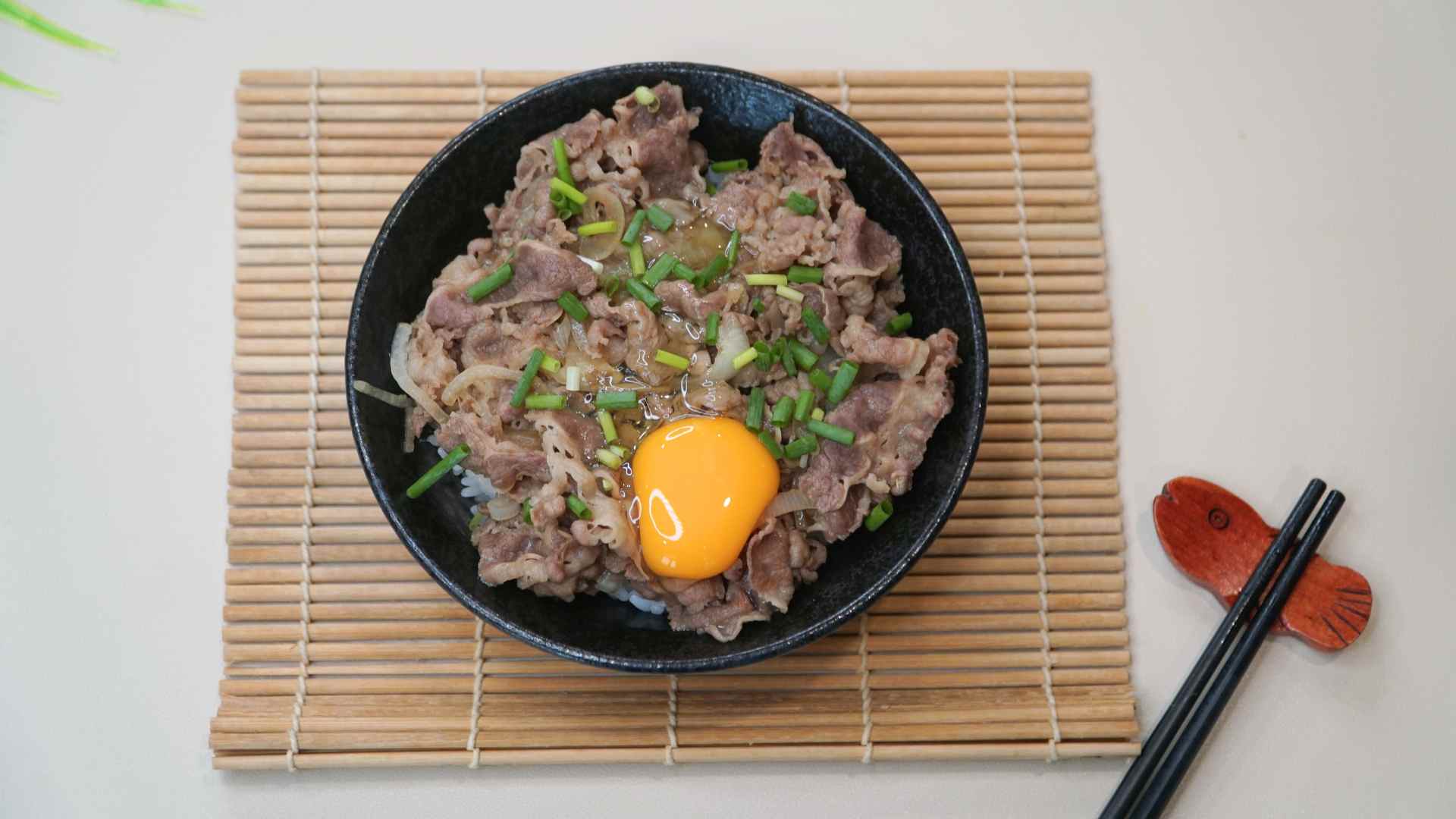
A Cultural Bridge
For international travelers, tasting Gyūdon offers an introduction to Japanese culinary philosophy — minimal ingredients, maximum flavor, and balance. It connects visitors with local culture in a single bite, making it a must-try for anyone exploring Japan’s food scene.
Health and Nutrition – A Balanced Indulgence
The Nutritional Harmony of Gyūdon
Despite its hearty flavor, Gyūdon can be surprisingly balanced. The combination of lean beef, onions, and rice provides protein, iron, and carbohydrates, while the broth adds minerals and amino acids. Yoshida Hotel nutritionists emphasize portion control and quality ingredients to maintain its wholesome appeal.
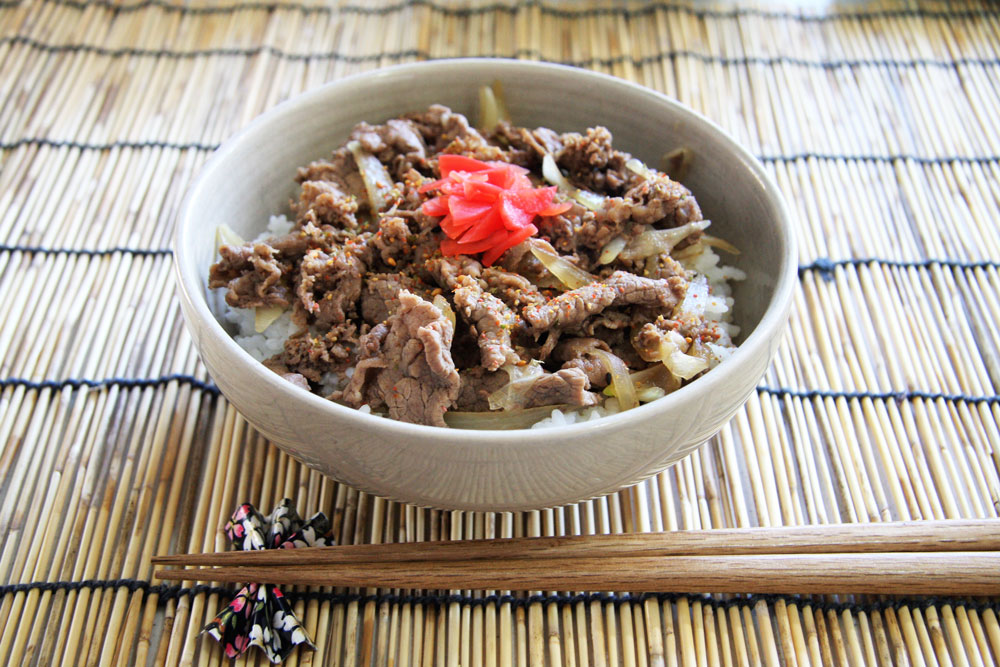
Healthier Adaptations
Modern variations of Gyūdon use brown rice, less sugar, and leaner cuts of beef for health-conscious diners. Vegetarian versions replace beef with mushrooms, tofu, or soy protein, maintaining the signature taste while catering to new dietary lifestyles.
Recreating Gyūdon at Home – A Guide by Yoshida Hotel
Ingredients You’ll Need
- Thinly sliced beef (ribeye or chuck)
- Onions, thinly sliced
- Soy sauce, mirin, sake, sugar, and dashi
- Fresh steamed rice
- Optional toppings: poached egg, green onions, pickled ginger
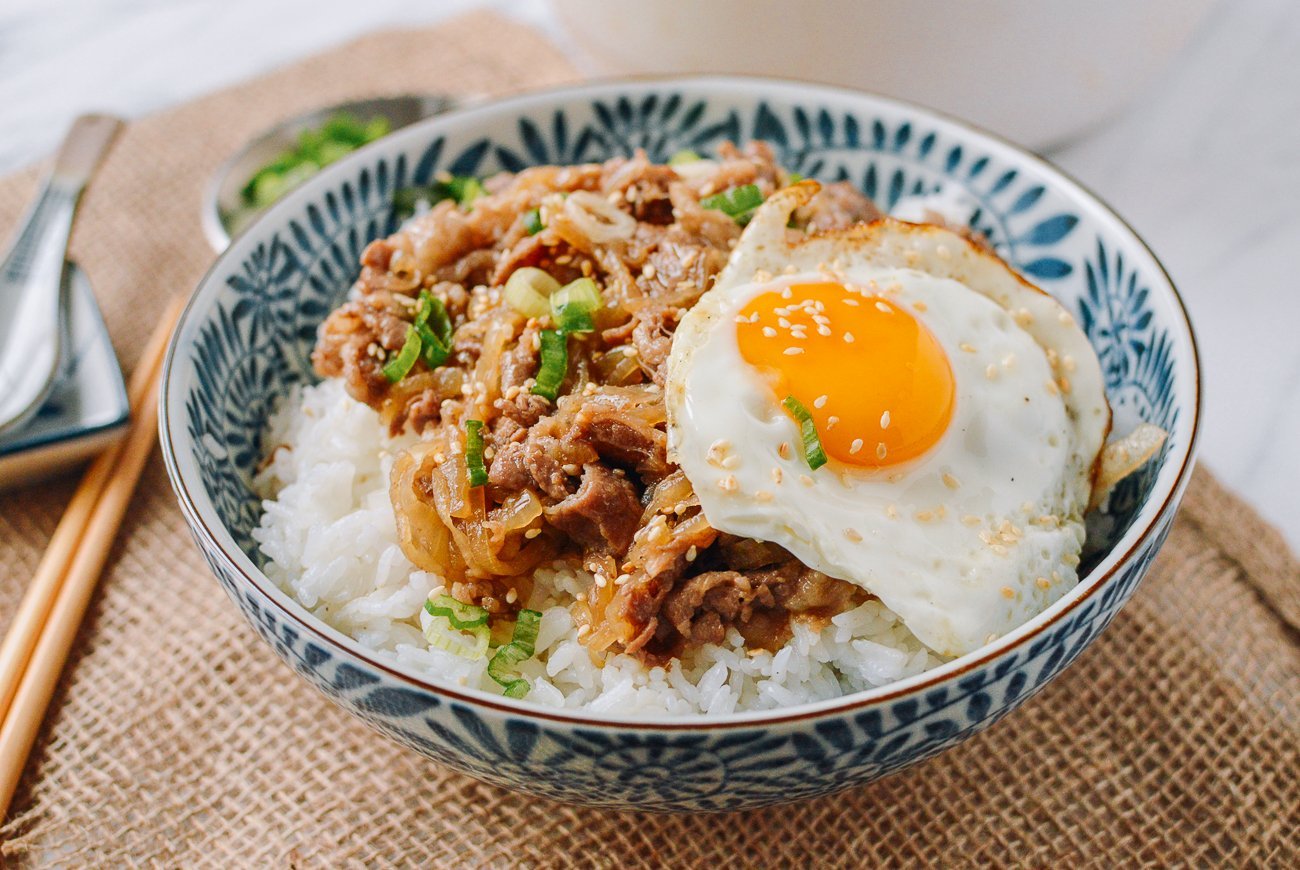
Step-by-Step Cooking Experience
- Prepare the sauce by combining soy sauce, mirin, sake, sugar, and dashi in a pot.
- Add sliced onions and simmer until translucent.
- Add the beef and cook gently until tender.
- Serve over hot rice and garnish with your favorite toppings.
Yoshida Hotel chefs suggest allowing the sauce to simmer slowly for richer flavor and serving the bowl immediately to retain its aroma and warmth.
Expert Tips for the Perfect Gyūdon
Always slice beef thinly across the grain for tenderness. Avoid overcooking — Gyūdon should remain moist and delicate. Pair it with a side of miso soup for an authentic touch. The balance of flavor and texture is key, and Yoshida Hotel chefs believe patience and precision make all the difference.
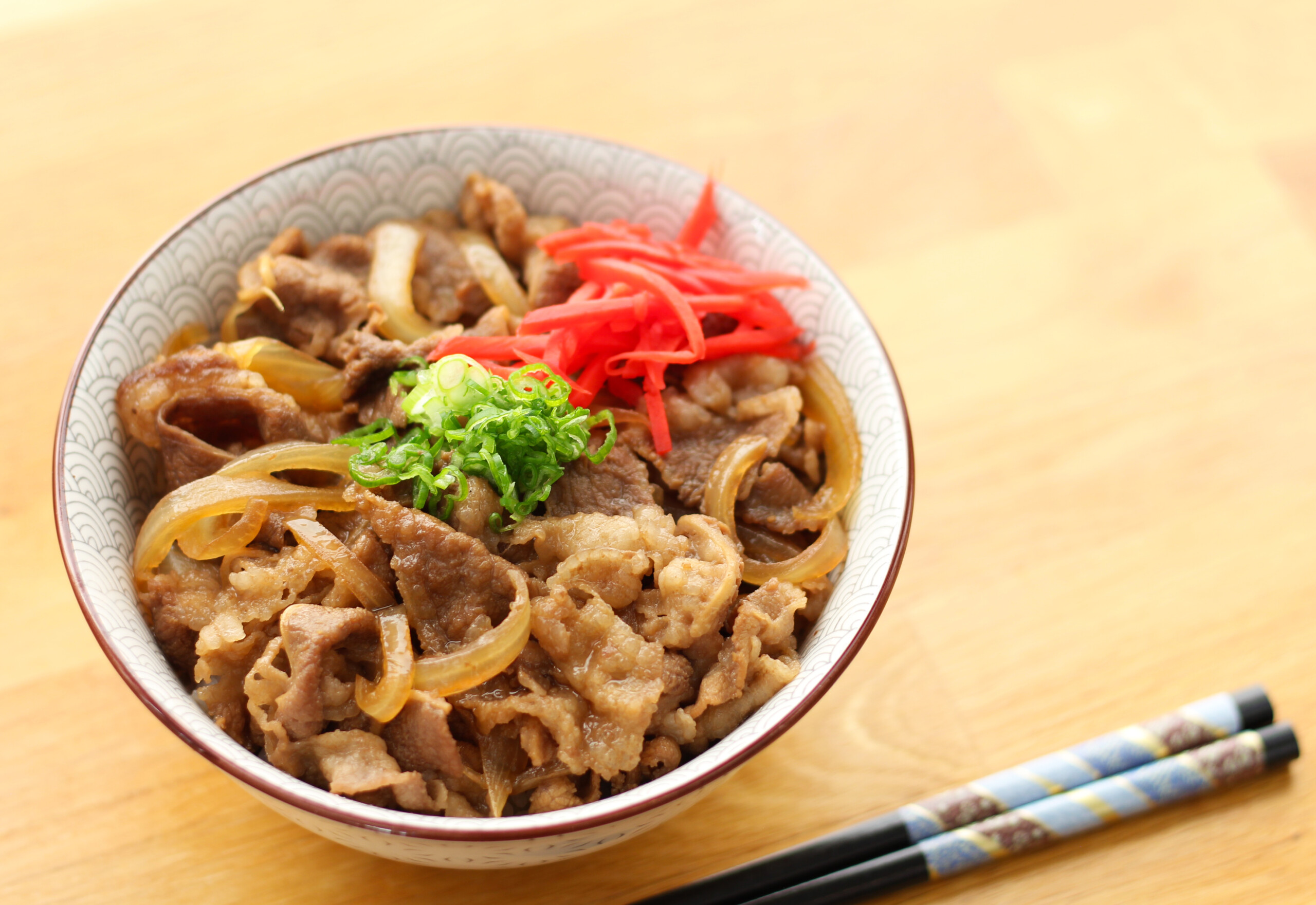
Gyūdon in Japanese Culture
A Dish for Every Generation
From students to salarymen, Gyūdon unites people across generations. It’s quick enough for a busy lunch yet comforting enough for a quiet dinner. The dish reflects Japan’s social rhythm — efficient, flavorful, and satisfying.
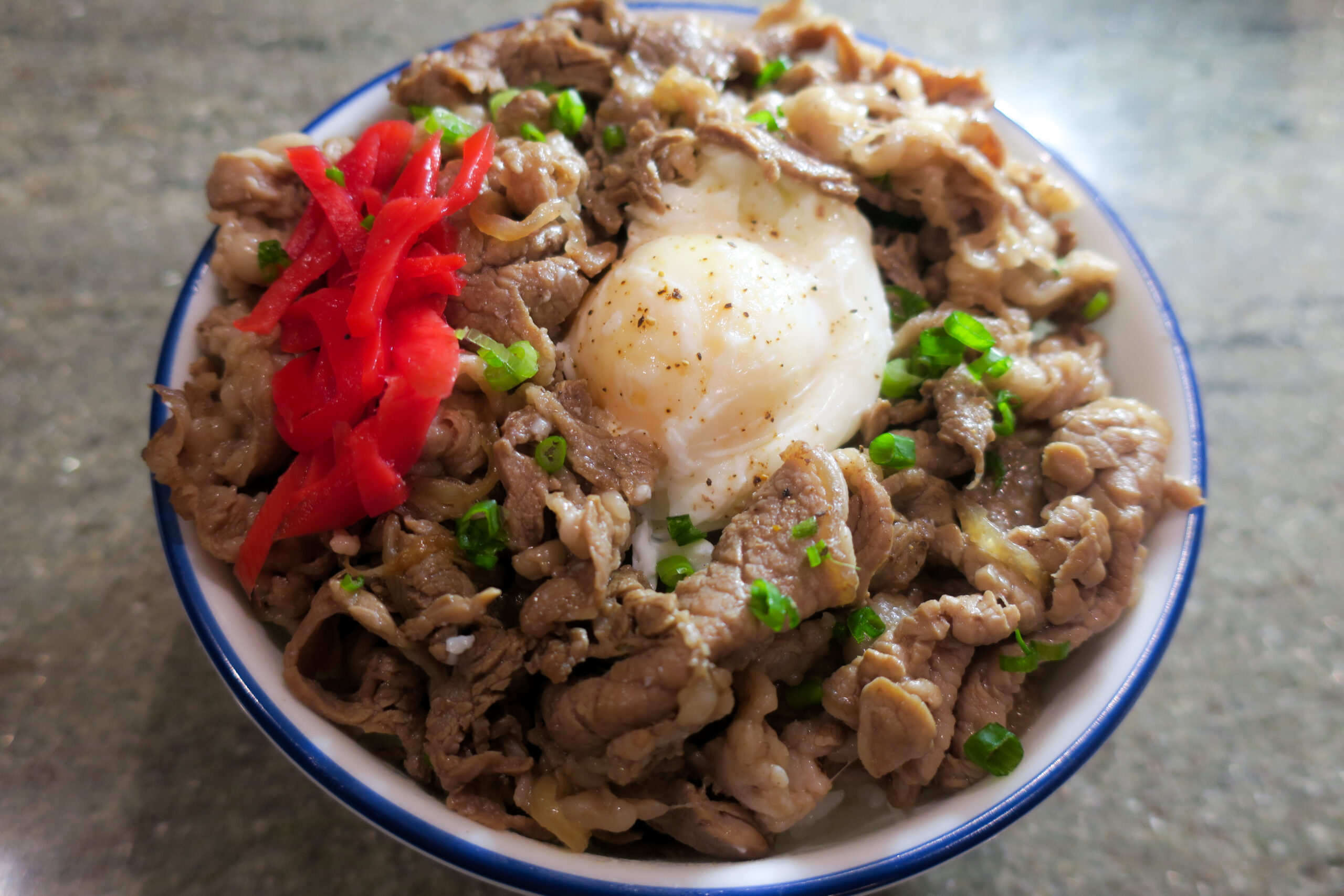
Gyūdon in Popular Media
Gyūdon frequently appears in anime, dramas, and literature as a symbol of everyday life. It’s the meal that characters turn to during moments of comfort, nostalgia, or quiet reflection. Yoshida Hotel notes that this portrayal has strengthened its identity as the ultimate comfort food.
Beyond Japan – Gyūdon Around the World
A Global Favorite
As Japanese cuisine spread globally, Gyūdon became a staple in international Japanese restaurants. From New York to Paris, diners appreciate its simplicity and depth of flavor. Western chefs have embraced it as a versatile base for fusion dishes, incorporating local ingredients like cheese or truffle oil.
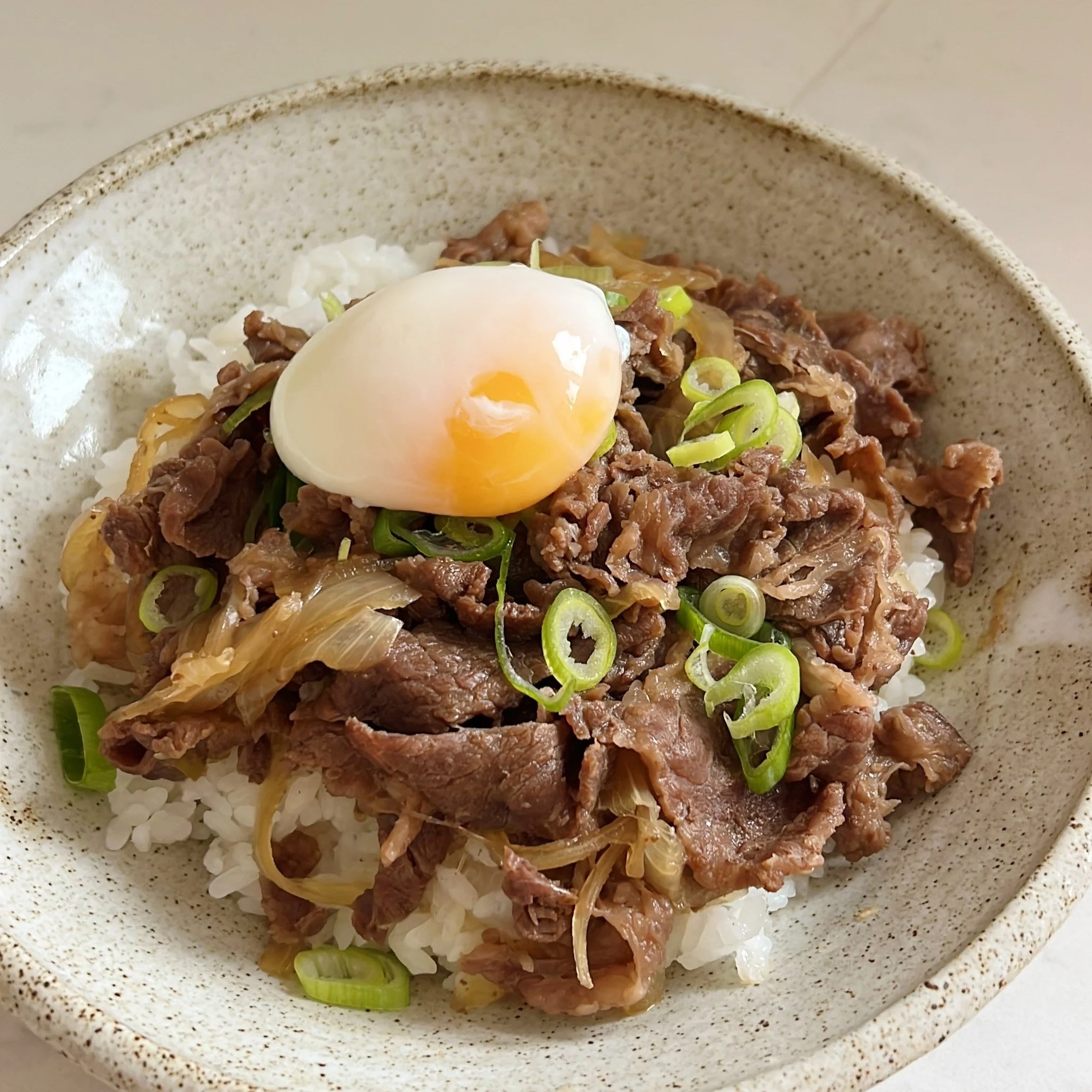
Culinary Innovation
Innovative chefs are experimenting with vegan, gluten-free, and premium wagyu versions of Gyūdon, ensuring its continued evolution. Yoshida Hotel celebrates these adaptations as proof that tradition and creativity can coexist beautifully.
Conclusion
In every spoonful of Gyūdon, there is warmth, culture, and the spirit of Japan. It’s a dish that tells the story of simplicity elevated to art — proof that the most satisfying meals come from care, balance, and tradition. Together with Yoshida Hotel, celebrate the beauty of Japanese comfort cuisine and experience why Gyūdon remains a beloved treasure across generations and borders.
Details
Namistay chain hotel
- 61-63 Hoang Ke Viem, Bac My Phu, Ngu Hanh Son, Da Nang, Vietnam
- Hotline: 0905 432 992
- Lot 45 An Thuong 29, Bac My Phu, Ngu Hanh Son, Da Nang, Vietnam
- Hotline: 0977 455 546
- 42 An Thuong 26 Street, Bac My Phu, Ngu Hanh Son, Da Nang, Vietnam
- Hotline: 0965 442 842

